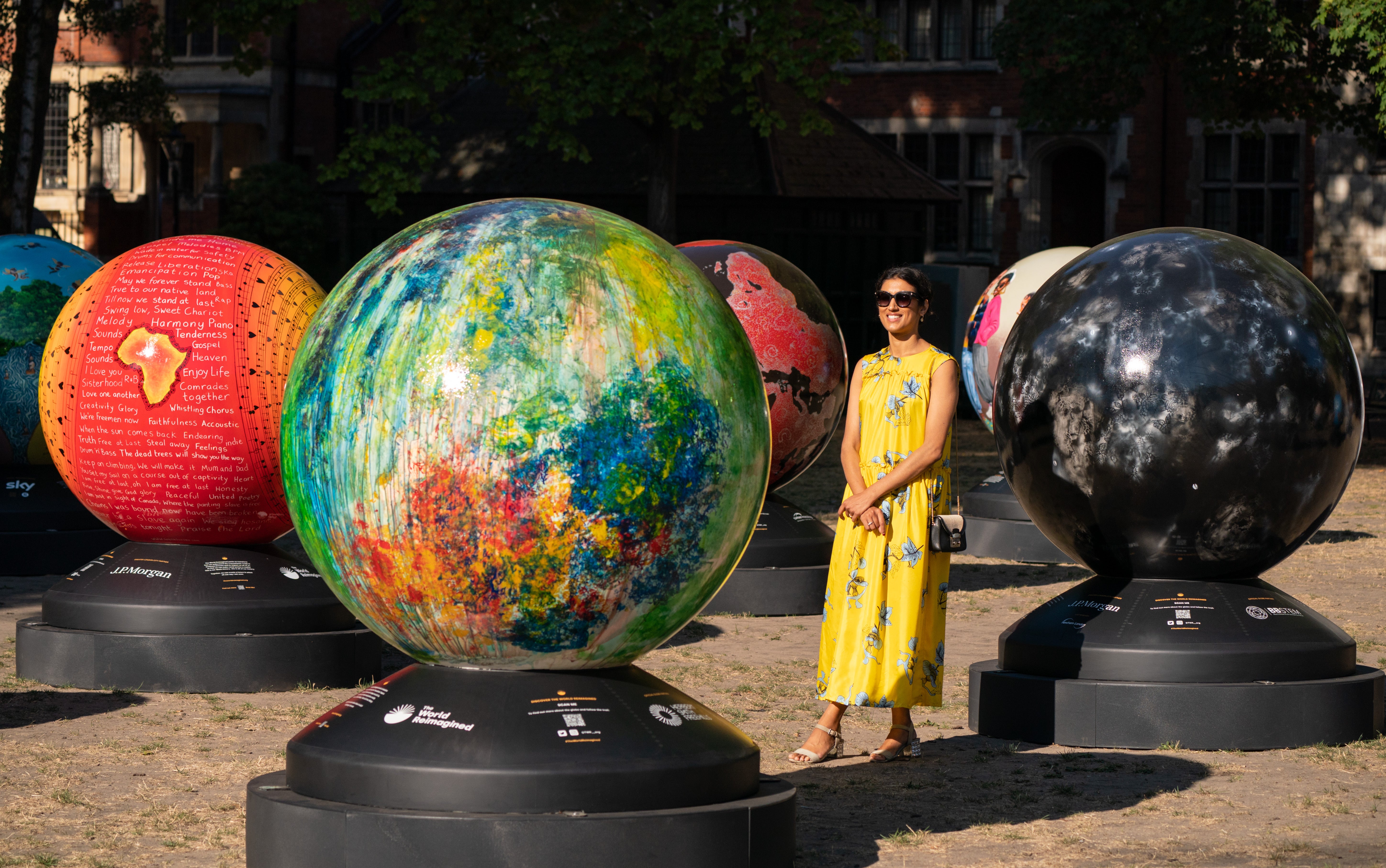
A new public art trail reflecting on colonial histories and the impact of the slave trade has been previewed outside Westminster Abbey ahead of its UK launch this weekend.
More than 100 artist-designed globe sculptures will appear in seven cities across the UK from Saturday and will be free to view by the public until October 31.
Forty-two of the designs were displayed in Dean’s Yard at the historic church in London on Thursday for one day only before being dispersed throughout the city.
The project aims to explore the UK’s relationship with the transatlantic slave trade, its impact on society and how action can be taken to make racial justice a reality.

The design of the globes explore themes including the culture of Africa before the slave trade and an ode to the Windrush generation.
Taking place in Bristol, Birmingham, Leeds, Leicester, Liverpool, London and Swansea, all trails will be connected by a digital platform that allows visitors to explore the collection and the history it reflects.
It has been created by arts organisation The World Reimagined, of which singer Michelle Gayle is a co-founder.
Ms Gayle said: “We know that the greatest force for progress and justice is people coming together in understanding, in conversation and in action.
“That is what we have seen so far in the artists, activists, schools, community groups, businesses and councils who have made The World Reimagined possible.

“These thought-provoking, challenging and inspiring works of art that are now transforming the streets of our host cities invite us to understand it is not ‘Black history’ – it’s all of our history.
“All of us have a role to play in the work of making racial justice a reality. So, we hope you will explore the trails and join the conversation.”
The trail will also feature more than 170 small globes created by schools who have taken part in The World Reimagined learning programme.
Among the more than 100 artists who are involved are Nicola Green, Lakwena Maciver, Vashti Harrison and Yinka Shonibare, who devised the sculpture shape.
The collection has been created with a number of partners including Professor Kehinde Andrews, the British Library and the International Slavery Museum.
The trails are part of a broader programme encouraging and supporting conversations around racial justice.







